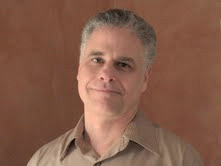There are times when human beings can become so broken that truths of how they are being victimized do not "set them free." This is certainly the case for many victims of parental and spousal abuse. They are not helped by people explaining to them that they are being battered, exploited, uncared about and disrespected. They know it already and somebody pointing it out is not helpful.
So, it seems to me that it is also possible that human beings can become so broken by the abuse of the corporate elite that they also are no longer set free by truth.
Polls show that the majority of Americans actually support single-payer, Medicare-for all plan and even a larger majority support a public option, yet there are relatively few people on the streets protesting the Democratic party betrayal of them.
And look at the 2000 U.S. "banana-republic" presidential election, in which Gore beat Bush by 500,000 votes and the Supreme Court stopped the Florida recount, and 51 million Gore voters were disenfranchised. Yes, there were small protest demonstrations against this election farce, but the numbers of protesters were so small that they empowered rather [than] concerned the future Bush administration, which went on to almost vaunt its regime of anti-democracy and piss on basic human rights. How humiliating for an entire nation. The shame many Americans feel, at some level, for allowing torture and other abuses is similar to the shame that spousal abuse victims feel -- and this routinely makes people feel even weaker. So, while not all Americans are broken, demoralized, and feeling powerless, many are.
I wish the answer to restoring democracy was simply one of people getting more journalistic truths through a non-corporate media --and certainly I am all for that -- but I think that much more is required. We need to take a look at what forces in American society are breaking the American people from the ability to resist tyranny and dehumanization, and we must start considering what are the antidotes to this. At least that's what any psychologist or social scientist who gives a damn about genuine democracy should be doing.
So, our feelings of powerlessness are rooted in modern life, exacerbated by present political realities. I'd like to point out another factor, which is what Paul Rogat Loeb refers to as our "historic amnesia." Historian and social activist Howard Zinn spent decades trying to offset that amnesia by providing an alternate history of our country, emphasizing various movements that have spanned decades (or generations) and eventually brought about change. He told stories of ordinary people doing extraordinary things and his book, A People's History of the United States has sold two million copies. So, it's obviously struck a chord. What do you think about the power of stories as an antidote to the ennui you describe?
Stories of resistance to tyranny are great for the morale, so Howard Zinn did a great service by popularizing historical examples. These can be inspirational. A broken person and a broken people need morale. Inspirational models whom people can identify with can be energizing, and energy is exactly what demoralized people need.
It is important for people to know that yes there are historical examples of people rebelling against the elite. It is important, for example, for us to know that there once was something called The People's Party in the U.S. and a huge Populist revolt that scared the hell out of the elite in the 1880s and 1890s.
But historical truths are not enough because sometimes people say, "That's just history, now is different, rebellion isn't possible." That's why not only historians need to report rebellions but journalists must report current resistance to the ruling elite corporations and their political lackeys, current resistance to this "corpocracy."
Bill Moyers has done a good job reporting on current resisters. I have seen a couple of examples on his recent shows. One is Steve Meachum and his group City Life which has successfully kept people from being thrown out of their homes in foreclosure. Another example is pediatrician Margaret Flowers, a member of Physicians for a National Health Program, jailed for the cause of single-payer/Medicare for all.
Good examples. I interviewed Dr. Flowers* last May, shortly after she was released from jail.
Historical examples and current examples of resistance against the corporacy can be inspiring, energizing, and morale boosting.
The elite know that to win the class war, just like wining any war, the goal is the crush the spirit of resistance of your opponent. So if you want to win the class war, you must care about the morale of your class.
Remember the "Tank Man" in China? While it is important for the people in China to know all the ways that they are being victimized, the problem is if they are completely terrified of their authoritarian government and too broken to resist, what's the good of knowing more and more about how they are being victimized? So, that one image of the guy getting out in front of the tank -- "the Tank Man" -- is hugely important.
(Note: You can view every article as one long page if you sign up as an Advocate Member, or higher).






